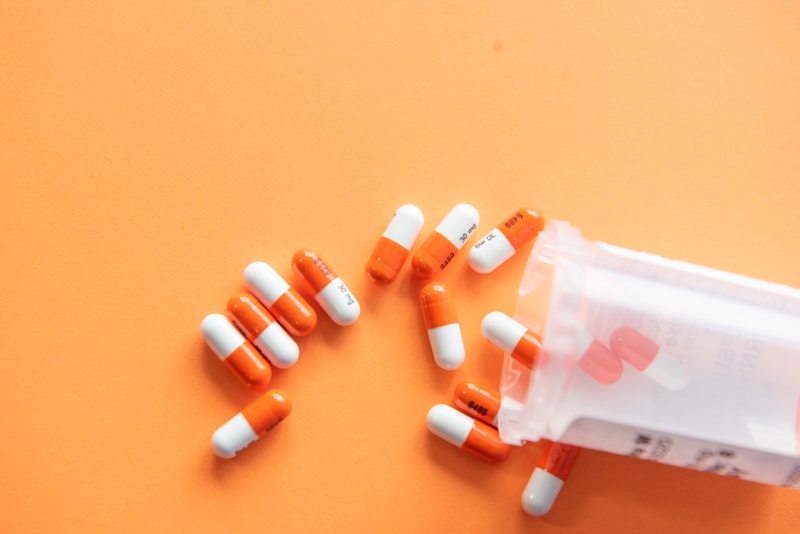Drug License Registration
Your Complete Guide to Pharmaceutical Business Compliance in India
What is a Drug License Registration?
A drug license is a legal permit provided by competent government regulatory authorities allowing an individual or entity to manufacture, sell, distribute or import drugs and cosmetics.
Acquiring a Drug License is mandatory for engaging in any pharmaceutical business in India. The entire process is governed by the Drugs and Cosmetics Act, 1940 and relevant rules to ensure any medicine supplied to the public is safe, efficacious and of high quality.
Regulatory Authorities
- CDSCO: Central Drugs Standard Control Organization (for new drugs and imports)
- SDSCO: State Drugs Standard Control Organization (for sale and distribution)

Covers All Medicine Types
Allopathic, Homeopathic, Ayurvedic, Siddha & Unani
Why Is It Needed?
There are several critical reasons why obtaining a drug license is essential for ensuring public safety and business reputability
Legal Compliance
Mandatory legal requirement - operating without a license is a punishable offense.
Public Safety
Regulates the industry to prevent fake, substandard and harmful drugs from circulation.
Business Credibility
Fosters trust among suppliers, healthcare professionals and customers.
Accountability
Provides mechanism to legally hold entities accountable when problems arise.
Avoid Penalties
Relieves businesses from harsh monetary fines, imprisonment and permanent closure.
Business Growth
Prerequisites for supplying to hospitals and government health programs.
Types of Drug Licenses
Different licenses are required based on the type of pharmaceutical operation you plan to undertake
Manufacturing License
For businesses manufacturing drugs and cosmetics, including allopathic, homeopathic and ayurvedic medicines.
Retail Drug License (RDL)
Required for pharmacies and chemist shops selling medicines directly to consumers.
Wholesale Drug License (WDL)
Needed for distributors selling medication in bulk to retailers, hospitals or licensed institutions.
Loan License
For businesses using another licensed manufacturer's facilities to produce drugs under their brand name.
Import License
Required for importing drugs or raw materials to manufacture drugs in India.
Multi-Drug License
To operate pharmacies with the same brand name in more than one state.
Benefits of Obtaining a Drug License
Beyond legal requirements, businesses enjoy numerous advantages with a valid drug license
Legal Authorization
Provides formal right to engage in pharmaceutical business while safeguarding from legal claims.
Enhanced Reputation
Improves perception among clients, indicating compliance and adherence to quality standards.
Market Access
Enables legal access to certified manufacturers and participation in government tenders.
Quality Assurance
Regulates good practices of storage and record keeping, ensuring medicine quality.
Business Scalability
Provides basis for growth with new branches or diversifying into wholesale/manufacturing.
Eligibility Criteria
Applicants must meet certain conditions regarding premises, storage and personnel
Space Requirement
- Retail or wholesale license: Minimum of 10 sq. m.
- Combined retail and wholesale: Minimum of 15 sq. m.
- Clear height must conform to National Building Code of India, 2005
Storage Facility
- Adequate storage facility with refrigerator and air-conditioner
- Special temperature conditions for vaccines, sera and insulin
Qualified Personnel
- Retail: Registered pharmacist with D. Pharm or B. Pharm
- Wholesale: Competent person 1 year of experience and 4 years of experience
Documents Required
Documentation varies according to the type of license you're applying for
Documents for Retail Drug License
Fee Structure
Government fees vary depending on the type of license
| License Type | Fee Amount |
|---|---|
| Retail or Wholesale License | ₹3,000 |
| Restricted License (general stores) | ₹1,000 |
| Schedule X Drugs (additional) | ₹500 |
| Manufacturing License | ₹7,500 + inspection fees |
| Renewal Fee | Same as original fee |
Application Forms for Sale Licenses
Different forms are required based on the type of drugs and license purpose
| License Purpose | Application Form |
|---|---|
| Retail/Wholesale of Allopathic drugs (not in Schedule C, C1, X) | Form 19 |
| Restricted license for Allopathic drugs (general stores) | Form 19A |
| Retail/Wholesale of Homeopathic medicines | Form 19B |
| Retail/Wholesale of drugs in Schedule X | Form 19C |
| Drugs in Schedule C & C1 (biological & special products) | Form 19 (License in Form 20B/21B) |
Steps to Get Registered
The application process is now online in most states - follow these simple steps
Online Portal Registration
Register on the official state drug licensing portal to obtain User ID and Password.
Application Filing
Log in and complete the appropriate online application form with all required details.
Document Upload
Scan and upload required documents in 100 dpi, black and white format.
Fee Payment
Pay the prescribed application fee through the online portal.
Premises Inspection
Drug Inspector will conduct physical inspection to verify compliance.
License Grant
Upon approval, Drug Controller issues the drug license with SMS notification.
Processing Timeline
30 to 60 Days
It usually takes between 30 to 60 days to obtain a drug license after submitting an application, depending on documentation completion and the inspection schedule.
Penalties for Non-Compliance
Serious penalties apply for non-compliance with the Drugs and Cosmetics Act, 1940
Selling Without License
Punishable offense leading to:
- Imprisonment: 1-3 years
- Fine: Minimum ₹5,000
Adulterated Drugs
Severe penalties for selling:
- Imprisonment: 1-3 years
- Fine: Minimum ₹1 lakh
Death/Serious Injury
Caused by adulterated drugs:
- Imprisonment: 10 years to life
- Fine: Minimum ₹10 lakh
Other Consequences
Ready to Get Your Drug License?
Ensure your pharmaceutical business operates legally and safely with proper licensing